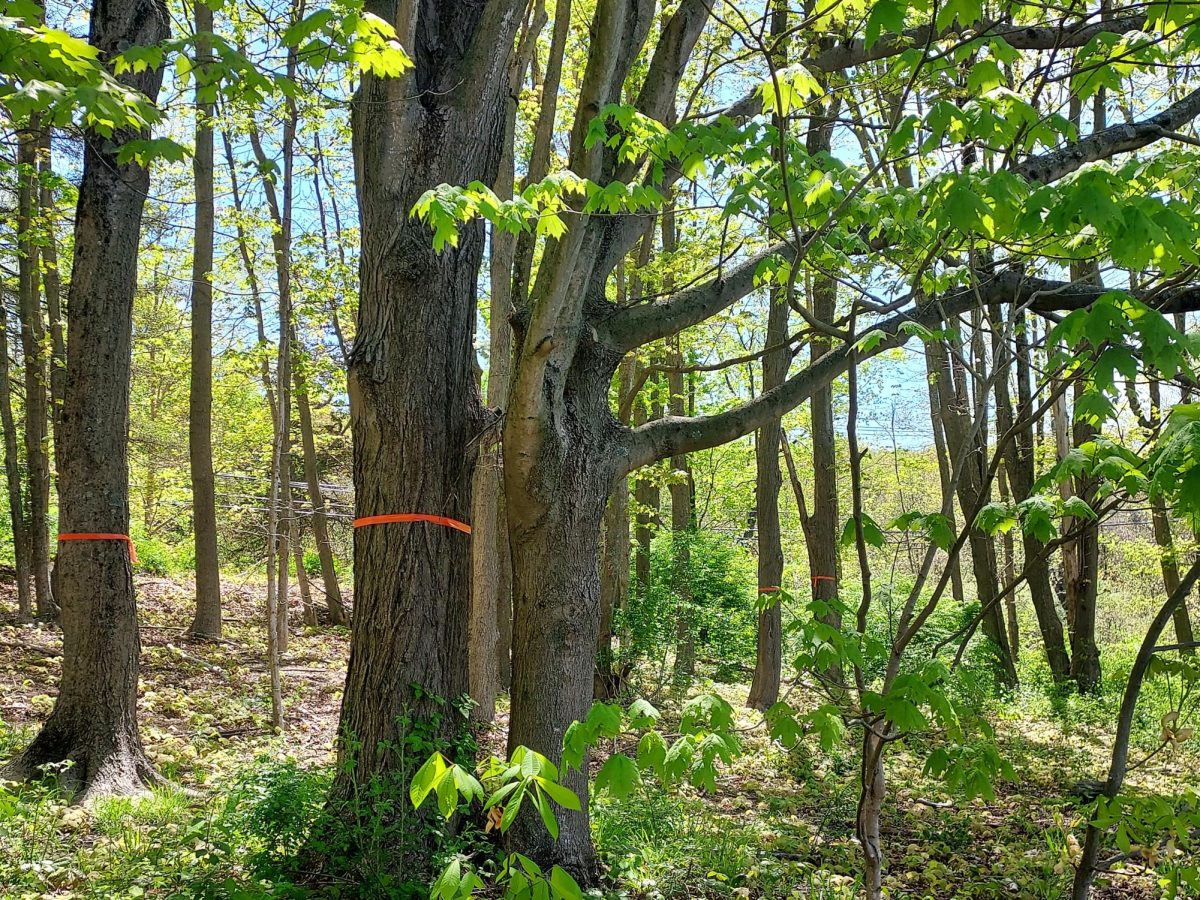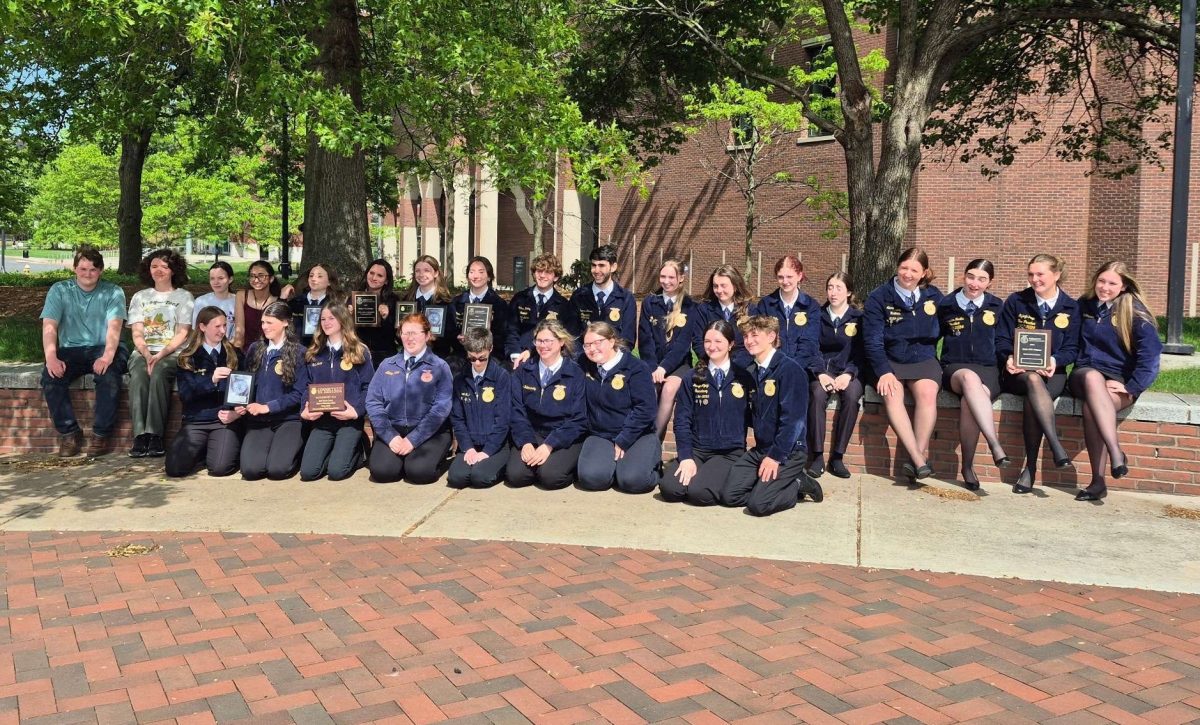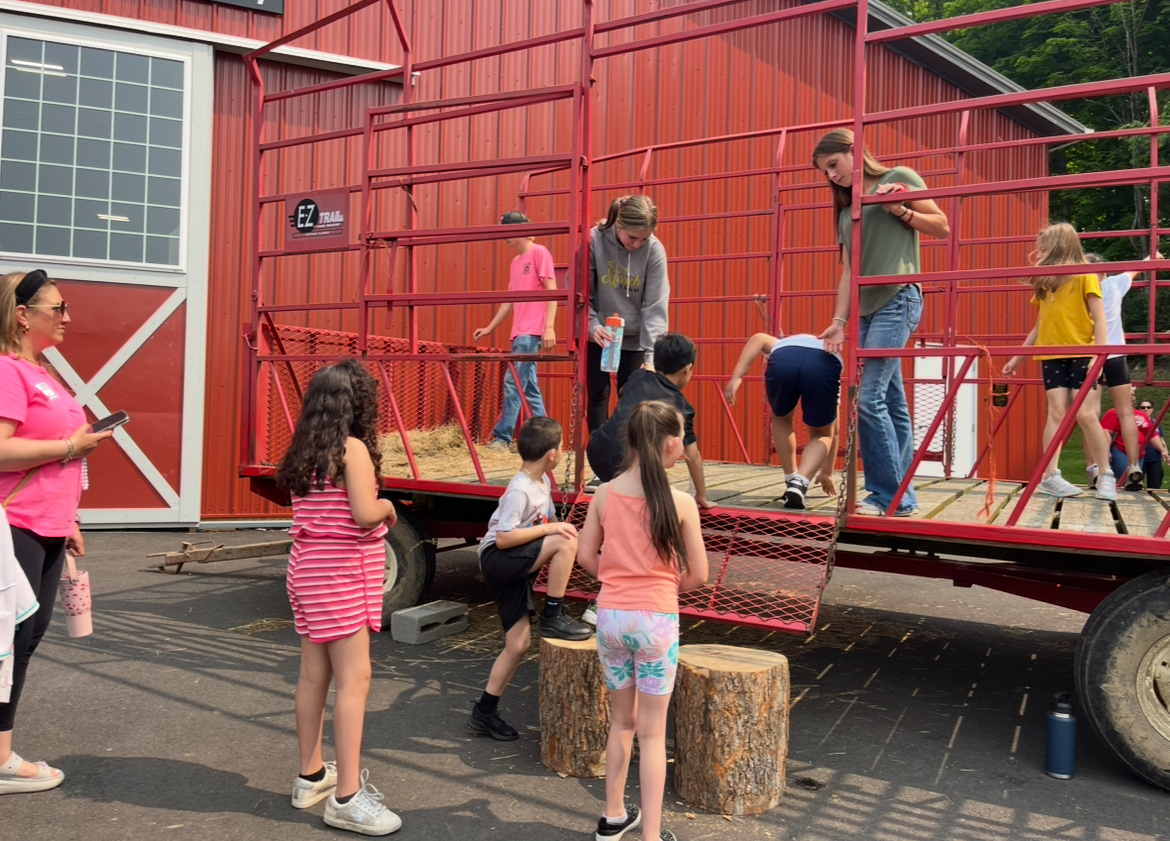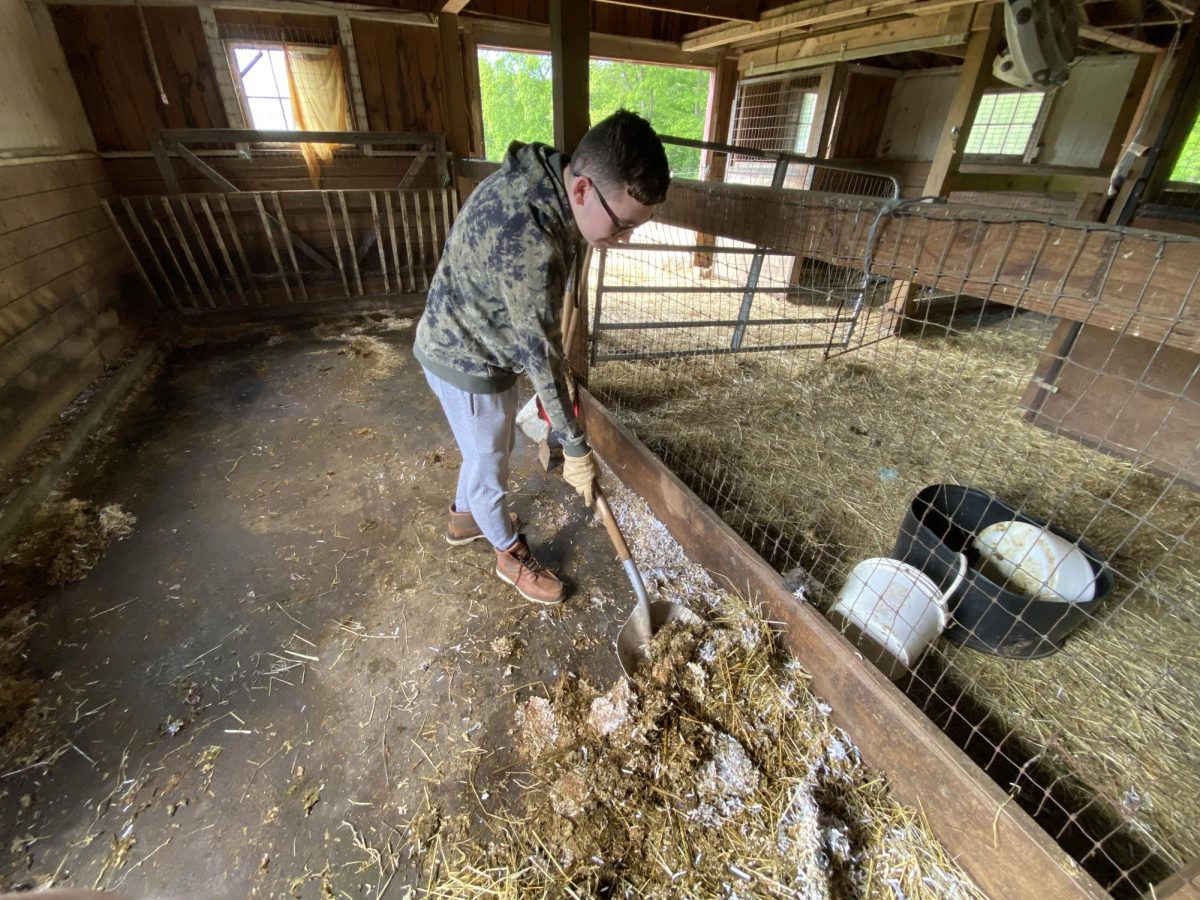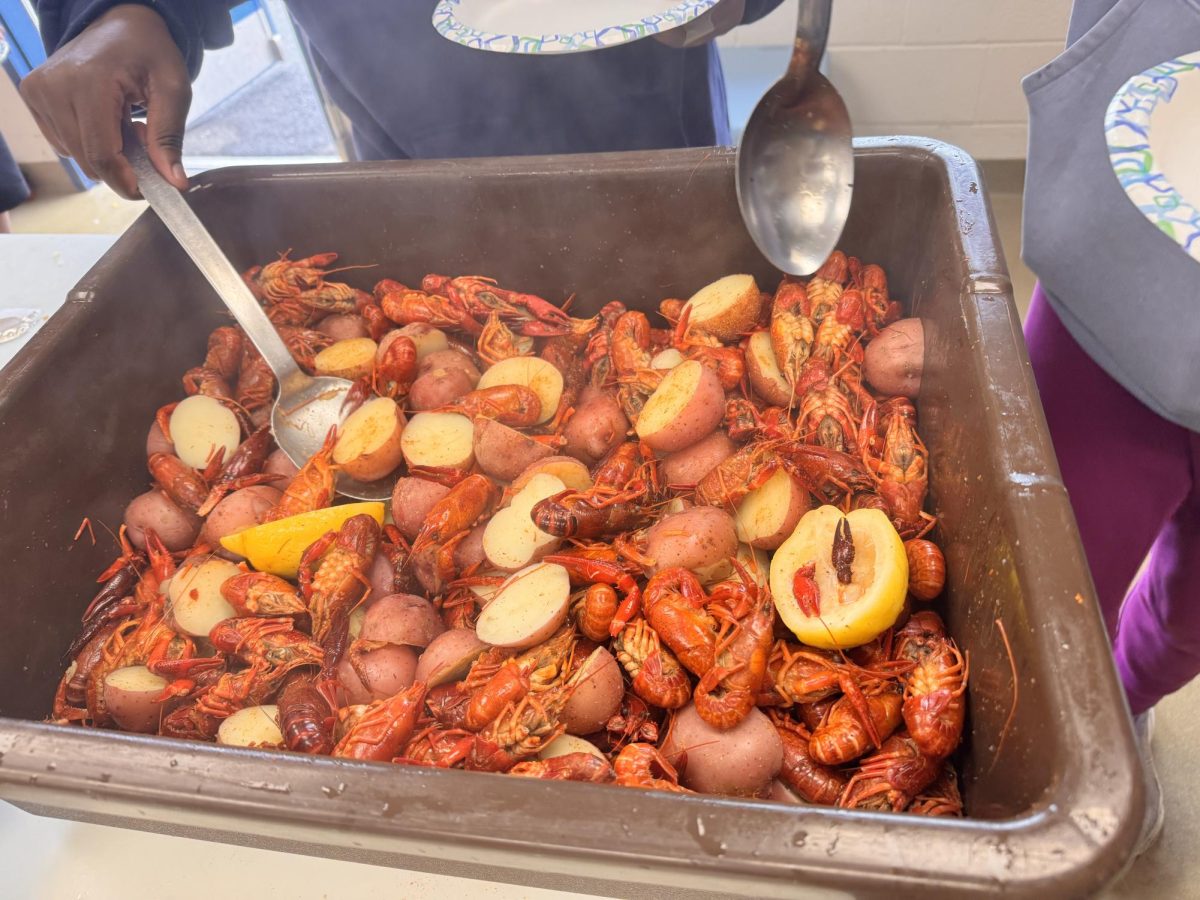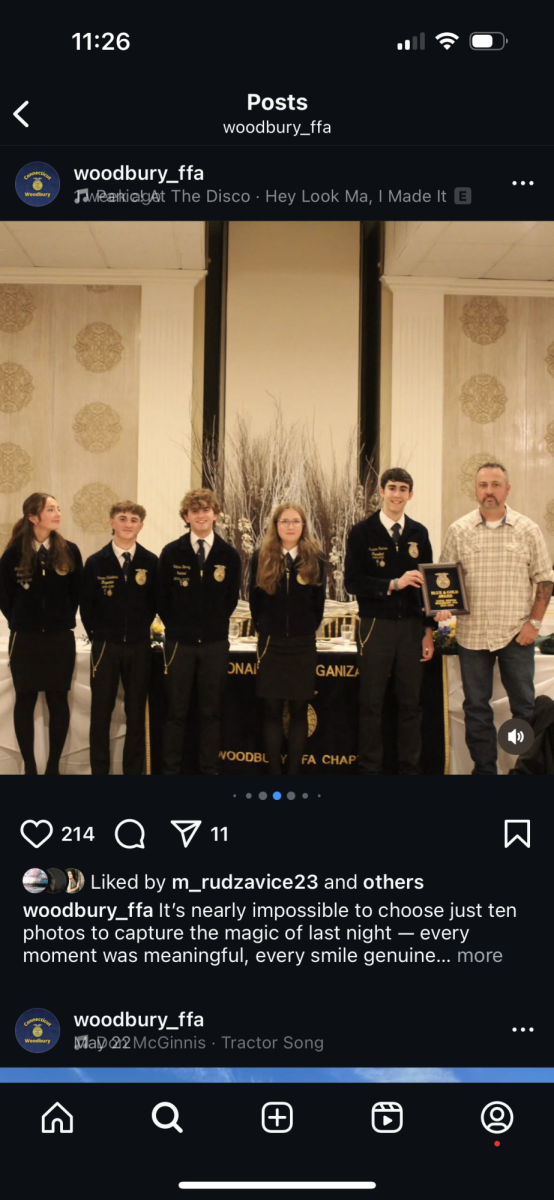WOODBURY — Course curricula are in a state of constant adaptation, and for this year’s natural resources course, adapting is perhaps the most vital element of the course.
Every fall, NHS natural resources classes prepare campus’ maple trees with sap lines to prepare for sap collection. There remains one problem: The course’s seminal activity is based on optimal, and predictable, conditions.
First made by Native Americans around the 1600s, maple syrup is a classic topping on breakfast and has a sweet taste to bring in the feeling of fall. Unfortunately, seasonal sap harvesting will be changing its schedule due to a change in climate — an issue encountered by NHS natural resources students.
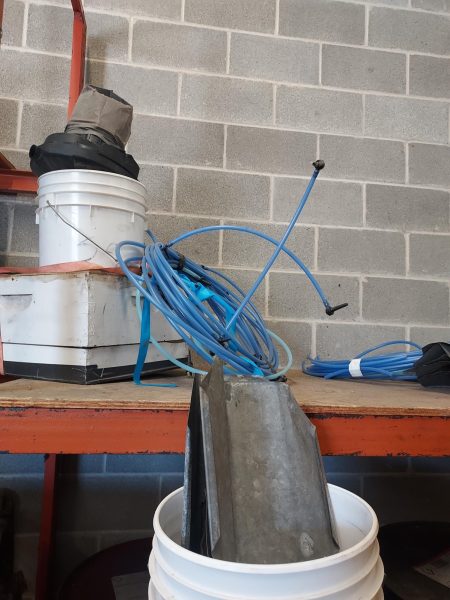
“It was warmer this year, so the started at a different time,” says natural resources student Keira Irvin, a senior who took this class in both her senior and junior years. “We weren’t as on track as we hoped to be.”
Good sap harvesting weather is warm days with cold nights. This usually lasts March through April, but warm weather coming early and poor winters will push good harvesting time back all the way to January.
For NHS’ natural resources students, reflecting on this past semester’s harvest, or lack thereof, is an important element of the course.
“In some regions, seasons which have generally remained the same for decades are now starting earlier,” says Nonnewaug natural resource teacher Lee McMillan, who has made maple syrup in other high schools for close to eight years. “What’s more, the sugaring season is also finishing sooner, giving farmers less time to collect maple sap and ultimately leading to lower yields.”
This past harvest season, the natural resources class nearly missed the fast-closing sap collection window, and was only able to produce 12 eight-ounce bottles after boiling all their sap. It was not enough to sell, so they gave it out to the junior/senior class students and select teachers.
Caught off guard by this change, Nonnewaug students aren’t the only maple syrup producers to almost miss this window.
Many syrup producers all over the Northeastern United States experienced similar issues. Vermont, the U.S.’s biggest producer of maple syrup, is also seeing a change in sap harvesting season. This could make maple syrup more expensive in the future and could impact big businesses as well as small.
For Nonnewaug, weather isn’t the only factor being accused of slowing maple syrup production. The construction of the new sugar shack being delayed was also charged with delaying production.
A sugar shack, or sugar house, is the name of a place where maple syrup is boiled and bottled. The one on Nonnewaug’s campus is where the natural resources class stores all its equipment and sap, making it vital to the production process.
A letter of temporary occupancy was given at the request of McMillan, but it didn’t come in fast enough to take advantage of the fast-coming optimal weather. Collection was postponed because of the fact that tree sap can only be stored for one week before going bad, and the class was without a place to boil before the time frame was up.
For McMillan and her students, spring provides the opportunity to plan for even more success in the 2024-25 school year.
“It will go better [next year] because we actually have the sugar shack now,” says Irvin. “There’s still not much certainty [with weather], though.”
With sap collecting periods changing, it’s anyone’s guess on when to put up the sap lines without interrupting already scheduled class time.
“This year, we prepared tubing lines in January, but looking at the weather trends this season, we may want to prepare tubing lines in December to prepare for possible warming temperatures,” says McMillan. “Getting the timing just right will be key.”



